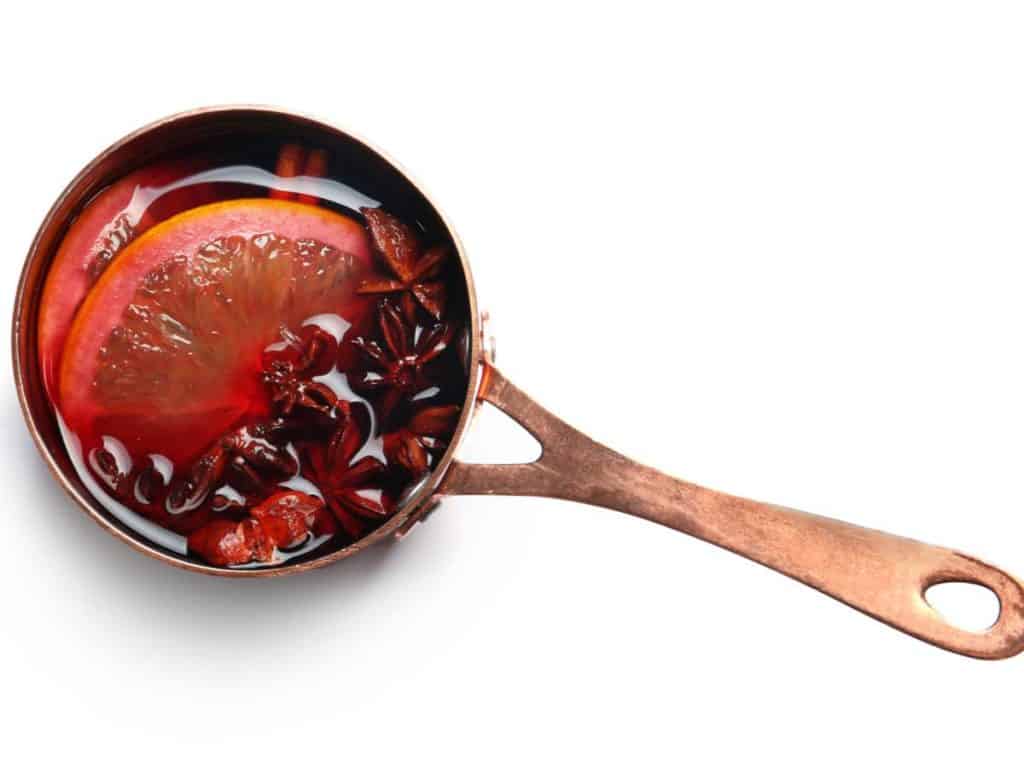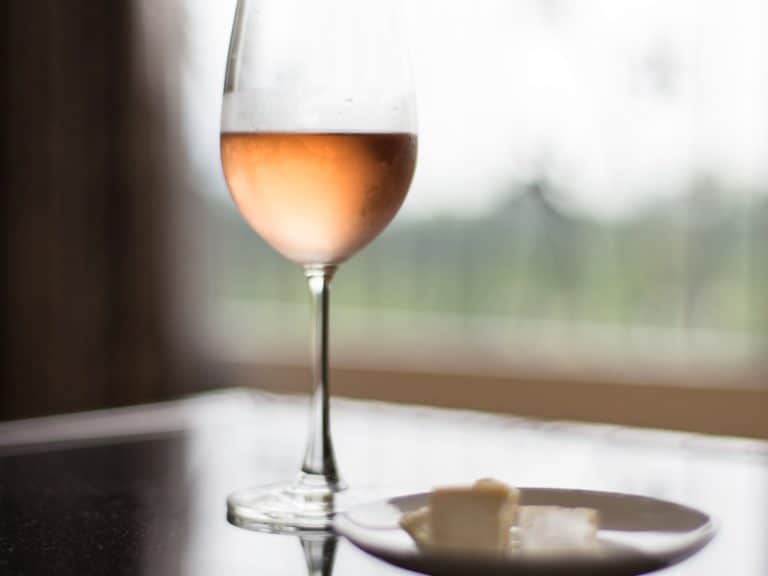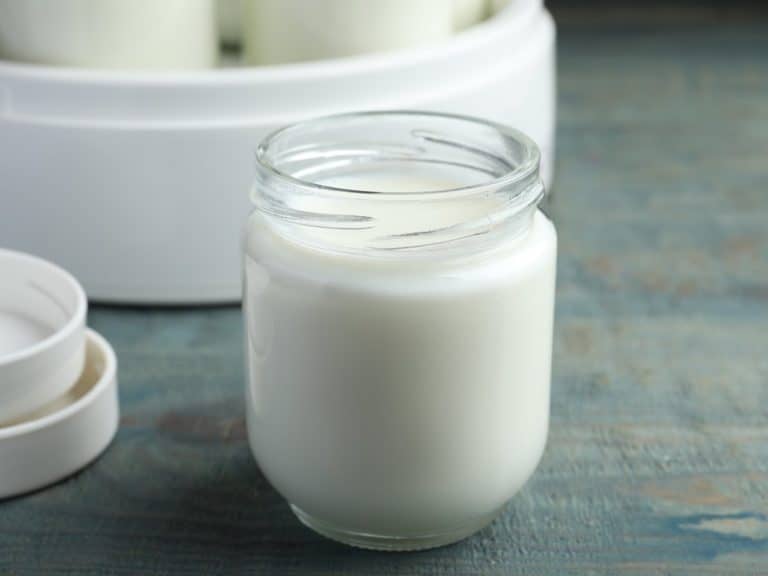Wine Best For Gluhwein: Select From 8 Options
Gluhwein is synonymous with Christmas festivities in Germany. While the name changes region-wise, spiced wine ( also called glogg and vin chaud) is famous throughout Europe. While the pre-mixed bottled variety of Gluhwein is readily available, there’s just something about making your own version from scratch.
The great news?
Making Gluhwein is pretty straightforward. All you need to do is pick a base red wine (although Gluhwein can be made with white wine as well), sweeten it, and add spices of your choice.
Trust us when we say this: nothing can beat the warming comfort of a steaming cup of Gluhwein on a chilly night.
However, a common consideration is choosing the best wine for Gluhwein as a base: Does it always have to be a dry red? Do you need expensive wines for a quaffable Gluhwein?
Read on as we answer all these questions and more so you can make the best Gluhwein whenever you want.
8 Best Wines For Gluhwein
So, you have decided to go ahead with making Gluhwein at home; the first step is to grab a bottle of dry red wine that can serve as the base.
After that, the recipe is open to interpretation. You can add spices and citrus rinds as per your liking, add vanilla, sweeten it with sugar or honey, add dry fruits like almonds; there really are no rigid rules.
This is precisely what makes homemade Gluhewin so much better than the pre-mixed version – you get to experiment and tweak the recipe till it’s just the right drink for you.
However, with so many red dry wines to choose from, it is often overwhelming to pick the one with the right flavor profile and quality. Therefore, we have curated a list of eight of the best wines for Gluhwein that cook down nicely and take the flavor of spices on seamlessly.

1. Paul Cluver Pinot Noir
- ABV: 13.84%
- Tasting Notes: Strawberry, raspberry, red cherry, mushroom, oka, vanilla, chocolate
This award-winning wine is one of the best choices for a Gluhwein base, thanks to its fruity red cherry, strawberry, raspberry, and cranberry notes. It also has a smooth earthiness, smoky, oaky flavors with subtle notes of vanilla.
Just the hint of spice light and aromatic wine works well with the fall flavor notes for Gluhwein. It provides the perfect canvas for the added spices to shine and makes the Gluhwein a cold-weather treat to remember.
2. Fleur du Cap Shiraz
- ABV: 12%
- Tasting Notes: Plums, blackberry, oak, vanilla, clove
This coastal region Shiraz is medium to full-bodied with a much bolder flavor to hold its own against mulling spices. If you prefer a wine with character, this is an excellent base wine. Its flavor notes of plummy fruit and oaky spices come with a slight acidic kick. Its smooth flavor is even more appreciated when you look at its price tag.
Sip on the wine as you add spices to it to adjust the flavor to your liking, and you will have Gluhwein (with a kick) ready in no time.
3. Bonterra Cabernet Sauvignon
- ABV: 14%
- Tasting Notes: Currant, cherry, raspberry, vanilla, toasted oak
Organic and budget-friendly, this cabernet sauvignon bottle is one of our favorite picks for making Gluhwein at home for several reasons. Its flavor palate lets the mulling spics sing, and it has enough character to not drown in their flavor.
In fact, we believe that this wine might benefit from extra spices. As always, si[ and adjust during finishing touches.

This cab’s lingering finish and bold, fruity, and spicy notes (think cinnamon) stand out against spices, presenting a beautiful contrast of flavors. All in all, this is an excellent organic option on our list.
4. Château Maris Rouge
- ABV: 14%
- Tasting Notes: Rose petal, cherry, blueberry, chocolate, currant
This bold, acidic red blend with high tannins is punchy enough on its own, with a red fruit-forward palate. Pair this medium to full-bodied blend with fall spices and fruity accents to make, dare we say, the perfect winter drink.
Why does this red blend work in homemade Gluhwein?
Well, with flavor notes of red plums, licorice, cherries, and smoke, this blend thrives with the addition of Christmas-y spices. Add fruits to accentuate its jammy notes further, and you will have a fine hot winter treat at hand.
5. Lapostolle Grand Selection Merlot
- ABV: 14%
- Tasting Notes: Cherry, blackberry, plum, cassis, black pepper, thyme
This organic fruit merlot from Chile has just the right fruity, spicy, and herbaceous notes to act as a base wine for Gluhwein. This medium-bodied Merlot is silky and bright, with natural acidity that works great when combined with fruits added to the Gluhwein mix.
Another plus is that this is an inexpensive, fruit-forward wine with low tannins, which sets the stage for the fall spices fresh and dried fruit added during the making of Gluhwein.
6. Domaine Bousquet Malbec
- ABV: 14%
- Tasting Notes: Red and blackcurrant, blackberry, plum, chocolate, oak
Talk about an easy-drinking Malbec, and this one does not break the bank! This malbec might be the best choice if you are brewing a big pot of Gluhwein, thanks to its lower price tag.
This full-bodied wine has black fruit notes with subtle hints of cassis, tobacco, and violets. While this might smell pretty sweet, the same might not translate on the palate. Thus, using a simple sugar syrup will aid that. As an alternative, you can use honey or, even, Cointreau.
Add some rum or brandy for extra pizazz.
7. Cline Ancient Vines Zinfandel
- ABV: 15%
- Tasting Notes: Strawberry, vanilla, coffee, chocolate, sweet spice
While choosing a base wine for Gluhwein really is a matter of preference, juicy, fruit-driven wines often take the crown. The fruity notes in this Zinfandel from California’s North Coast do just that and more.
This red has a sweet spice dominant palate, full-bodied and packed with flavor. The fruitiness of this complex wine is an excellent start for a wonderful Gluhwein.
Sip on this deceptively inexpensive wine while you make your hot spicy concoction and adjust the sweetness along the way. Be careful not to overheat.
8. Waitrose Fairtrade Pinotage
ABV: 14%
Tasting Notes: Balck cherry, plum, smoke, cocoa, tobacco, leather
This full-bodied and rich wine does not lose its character after fruits and spices are seeped into it to make Gluhwein. Its fruity and smoky notes go well with mulling spices but in no way get drowned in them.
If you’re more into full-bodied reds, then this pinotage might be right up your alley. As always, when making Gluhwein, always choose a wine that you would enjoy otherwise too.
Expensive Vs. Cheap: What Kind Of Wine Works Best For Homemade Gluhwein?
You probably have already guessed from the eight wines we recommend as the most suitable for a killer Gluhwein, but we do not think you should be splurging on the base wine.
While it’s best to go for fruity wines with low tannins that complement the flavor of spices or ones with high tannins that do not get drowned in the aromatics (it really is a matter of preference), the quality of the wine is often not the topic of debate.
Since you will be heating the wine to make Gluhwein, many of the nuanced and subtle notes of delicate flavors will have evaporated by the time you are done. Thus, it is not worth using expensive wine that should be enjoyed on its own while you have dinner.
Another reason we believe you should keep the pricier wines in the cellar for Gluhwein is that it is a festive drink often made in big batches to be consumed by friends and family over the holiday season. Should you choose to use a high-range wine, making and serving, Gluhwein could easily break the bank for you.
That said, we do not recommend using wines that you may not enjoy drinking. While there can be many choices for a base wine, the chances are that you won’t want Gluhwein made from the wine you do not like drinking.
Go for something mid-range that tastes pleasant to you and let the spices and fruits add more flavor. In a nutshell, go for a decent quality, palatable wine that offers a good compromise between taste and budget.

Guidelines To Make Gluhwein At Home
There is no one recipe for Gluhwein, the same way there is no one “perfect” red dry wine base. Any recipe that you may find on the internet can be changed in various ways, from flavoring to spices to choice of fruits.
The possibilities are limitless.
Thus, you can follow this recipe to the T, but there is no cap on alterations you can make to make the recipe your own.
Ingredients you need:
- 1 (750 ml) bottle of any dry red wine of your choice
- ¼ cup or to taste sugar or honey
- ¾ cup of water
- One small orange
- 20 cloves (whole)
- Two star anise (whole)
- Two cinnamon sticks
- Rum to serve (optional)
Instructions to follow:
- Remove the rind from the orange using a vegetable peeler or a zester. Ensure to avoid the bitter pith. Cut the orange in half and juice it. Set both things aside separately.
- Take a saucepan (preferably only used for mulling wine) and combine sugar and water. Alternatively, you can use honey. Heat the solution until dissolved.
- Lower the heat and add your spices, orange rind, and juice.
- Wait until a thick syrup forms; the spices and fruit flavors get infused.
- Lower the flame even further and add the wine, and heat on a low simmer for a minimum of 20 minutes. You can let the spices and fruit rinds seep in the wine for a couple of hours more but ensure it does not overpower the original wine flavor.
- Do not let the wine come to boil, or it may not taste very pleasant.
- Strain and serve on its own or with a shot of rum for a boozier version.
Helpful Tip: Always use whole spices rather than ground and crushed varieties to make it easier to strain.
Alternative Flavors to Add To Gluhwein
You can use sugar or honey to sweeten the wine in the recipe mentioned above. In the same way, there isn’t much restriction to add other fruits and spices in the mix to make the flavor suit your taste buds.
Apart from cinnamon, cloves, and star anise, you can add nutmeg, bay leaves, and ginger.
Other additions include lemon zest, cardamom, apple slices, pear, vanilla extract, tea infusions, and hibiscus. All in all, fall-inspired flavors can take your Gluhwein to the next level.
Don’t be afraid to add your signature touches to the red wine of your choice to make a hearty hot drink for the winter season.
Taste your spice wine mixture along the way and make any changes that seem necessary. The same goes for your base wine choices; keep experimenting with different profiles fruity reds, high tannins, low tannins, more character, medium-bodied, full-bodied, etc.) and stick with the one you like the most.
Helpful Tip: If you are not a fan of skimming out spices from Gluhwein, you can make a spice mix sachet instead, using a cheesecloth. Simply add all the spices you want in cheesecloth and add it to the base wine. Once done seeping, just take the spice packet out with ease.
So, Which Wine is Best for Gluhwein?
Choosing base wine for Gluhwein is a matter of preference. However, mid-range wines with fruity flavors work well as they enhance the flavor of spices, fruit juice, and rinds are added to the mixture.
Depending on what you like, you can choose full-bodied wines or go for lighter-bodied options. While no one wine is the perfect base for Gluhwein, the best practice is to go for a vino that you enjoy drinking otherwise.
However, we would not recommend using expensive high-quality wine for Gluhwein since most of its subtle flavors will be lost when you heat it.
Such wines are better off enjoyed with food or on their own rather than cooked down with spices. Keep experimenting with reds of different bodies and flavor profiles to find one you like the most.





